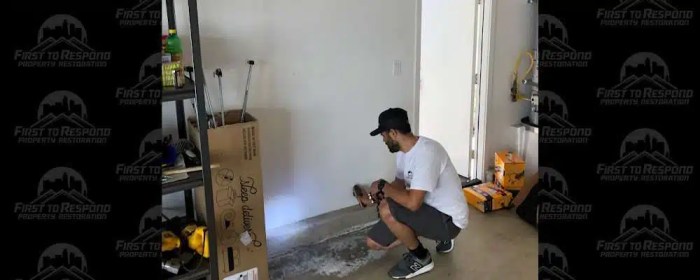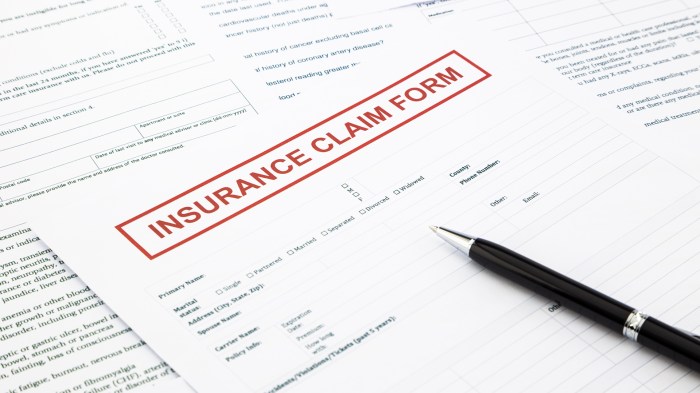
How do roofing companies work with insurance companies? It’s a question that pops up when a storm rolls through and leaves your roof looking like a war zone. You know you need a new roof, but who handles the paperwork and the payments? That’s where the magic of insurance and roofing companies come together, like a superhero team tackling a leaky roof disaster.
This guide dives into the intricate dance between roofing companies and insurance companies, from filing claims to navigating repair costs. We’ll break down the process, step by step, so you can understand how it all works and what you need to know when disaster strikes your roof.
Estimating and Repairing the Damage

When a storm hits, and your roof takes a beating, it’s time to call in the big guns—a professional roofing company. They’re the ones who’ll help you navigate the insurance claim process, but first, they need to figure out the extent of the damage and what it’ll take to fix it. That’s where damage estimates come in, and they’re a crucial part of the whole shebang.
Assessing Roof Damage
Roofing companies use a variety of methods to assess roof damage and determine repair costs. Think of it like a detective’s toolbox, but instead of magnifying glasses and fingerprints, they use their skills and knowledge to uncover the clues.
- Visual Inspection: This is the bread and butter of roof damage assessment. It involves a thorough examination of the roof, looking for things like missing shingles, cracked tiles, leaks, and any other signs of damage. It’s like a full-body checkup for your roof, but without the embarrassing parts.
- Drone Inspections: Drones are becoming increasingly popular for roof inspections, especially for larger or hard-to-reach areas. They provide a bird’s-eye view of the roof, allowing roofing companies to get a clear picture of the damage and identify any hidden problems.
- Infrared Thermography: This method uses a special camera that detects heat differences. This can help roofing companies identify areas of moisture buildup or leaks, which may not be visible to the naked eye. Think of it like a superhero’s heat vision, but for your roof.
Estimating Repair Costs
Once the damage has been assessed, the roofing company will then create an estimate for the repair costs. This estimate will include the cost of materials, labor, and any other necessary expenses.
- Material Costs: This includes the cost of new shingles, tiles, underlayment, flashing, and any other materials needed for the repair.
- Labor Costs: This includes the cost of the roofing crew’s time and expertise. It’s important to note that labor costs can vary depending on the complexity of the repair and the location.
- Other Expenses: This could include things like permits, disposal fees, and any other miscellaneous expenses.
Common Roof Repair Methods and Costs
Here’s a breakdown of some common roof repair methods and their associated costs. Keep in mind that these are just estimates, and actual costs may vary depending on the specific situation.
| Repair Method | Estimated Cost |
|---|---|
| Shingle Replacement | $200 – $500 per square (100 square feet) |
| Tile Replacement | $300 – $800 per square |
| Roof Leak Repair | $100 – $500 per leak |
| Flashing Repair | $50 – $200 per flashing |
Helping Homeowners Understand Their Repair Options, How do roofing companies work with insurance companies
Roofing companies are there to help homeowners understand their repair options. They can explain the different methods available, the costs involved, and the benefits of each option. They can also help homeowners navigate the insurance claim process and ensure they get the most out of their coverage.
- Clear Communication: Roofing companies should communicate with homeowners in a clear and concise way, explaining the repair process and answering any questions they may have. Think of it like a good friend giving you the lowdown on something important.
- Detailed Estimates: A detailed estimate will break down the costs of each repair item, making it easier for homeowners to understand where their money is going. It’s like a receipt, but for your roof.
- Insurance Expertise: Many roofing companies have experience working with insurance companies, and they can help homeowners file their claims and negotiate with their insurer. Think of them as your insurance claim whisperers.
Payment and Settlement

After your roof has been inspected, the insurance company will assess the damage and determine the amount they will pay for repairs. The payment process for insurance claims involving roofing repairs can be a bit of a dance, but with the right moves, you can get your roof fixed and your wallet happy.
Insurance Company Payment Processing
The insurance company will process the payment to the roofing company, not directly to the homeowner. This is usually done in the form of a check or electronic transfer. The roofing company will then use this payment to cover the cost of materials, labor, and any other expenses associated with the repair.
- The insurance company will first review the estimate provided by the roofing company and verify the scope of work and the cost of materials and labor.
- Once the insurance company approves the estimate, they will issue a payment to the roofing company.
- The roofing company will then use the payment to cover the costs of the repair. Any remaining funds will be returned to the homeowner or used to cover any deductible.
Homeowner Challenges in Receiving Insurance Payments
Homeowners may face a few challenges when trying to get their insurance payments, and it’s important to be prepared for these situations.
- Delays in Payment: Insurance companies may take some time to process claims, especially if there are any disputes about the amount of damage or the cost of repairs. This can be frustrating for homeowners, especially if they are living in a damaged home.
- Underpayments: Insurance companies may not always pay the full amount of the claim. This can happen if they dispute the cost of repairs or if they believe that some of the damage was not covered by the policy.
- Denial of Claims: In some cases, insurance companies may deny claims altogether. This can happen if they believe that the damage was not caused by a covered event or if they find that the homeowner was negligent in causing the damage.
Roofing Company Assistance
Roofing companies can be a huge help in navigating these potential challenges. They have experience working with insurance companies and understand the payment process.
- Negotiating with Insurance Companies: Roofing companies can help homeowners negotiate with insurance companies to ensure that they receive fair compensation for the damage.
- Filing Appeals: If the insurance company denies a claim or underpays, roofing companies can help homeowners file appeals.
- Providing Documentation: Roofing companies can provide the insurance company with the necessary documentation to support the claim, such as photos, estimates, and invoices.
Common Challenges and Solutions
Working with insurance companies can be a bumpy ride for roofing companies. While the process can be straightforward, there are times when things get complicated, especially when it comes to the amount of coverage or the cost of repairs.
Disagreements Regarding Coverage or Repair Costs
Disagreements regarding coverage or repair costs are common occurrences in the roofing industry. Insurance companies may dispute the extent of damage, the necessity of certain repairs, or the reasonableness of the estimated costs. This can lead to frustration and delays in the repair process.
- Coverage Disputes: One common challenge is when insurance companies dispute the extent of damage covered by the policy. This can happen when the damage is considered pre-existing, not related to a covered event, or if the policy has specific limitations.
- Repair Cost Disputes: Another common challenge is when insurance companies disagree with the cost of repairs. They may argue that the proposed repairs are excessive or that the chosen materials are too expensive.
Mediation or Arbitration
Mediation or arbitration can be valuable tools for resolving disputes between roofing companies and insurance companies. These processes provide a neutral platform for both parties to present their case and reach a mutually acceptable agreement.
- Mediation: Mediation involves a neutral third party who helps facilitate communication and negotiation between the parties. The mediator does not make a decision, but helps the parties reach a compromise.
- Arbitration: Arbitration involves a neutral third party who acts as a judge and makes a binding decision based on the evidence presented. Arbitration can be a more formal process than mediation and may be more appropriate for complex disputes.
Successful Strategies for Resolving Challenges
There are several strategies that roofing companies can use to resolve challenges in the claims process.
- Documentation: Thorough documentation is crucial for supporting claims. This includes detailed estimates, photographs of the damage, and communication with the insurance company.
- Communication: Open and consistent communication with the insurance company is essential. This includes clearly explaining the damage, the proposed repairs, and the cost estimates.
- Expertise: Roofing companies should have a strong understanding of insurance policies and claims procedures. This knowledge can help them navigate the process effectively and avoid potential pitfalls.
- Negotiation: Negotiation is a key part of the claims process. Roofing companies should be prepared to negotiate with insurance companies to reach a fair settlement.
Conclusion

Working with insurance companies can be a maze, but understanding the process with a trusted roofing company by your side can make it a smoother ride. Remember, communication is key, so keep the lines open with both parties. From the initial claim to the final payment, you’ll be equipped to navigate the process with confidence, knowing you’ve got the right team in your corner.
FAQ Explained: How Do Roofing Companies Work With Insurance Companies
What happens if the insurance company and the roofing company disagree on the repair costs?
If the insurance company and the roofing company can’t agree on the repair costs, they may need to go through mediation or arbitration to resolve the dispute. It’s important to stay involved in the process and advocate for your best interests.
Can I choose any roofing company I want to work with after an insurance claim?
While you can choose any roofing company you want, insurance companies may have preferred contractors or require you to use a contractor from their list. It’s best to check with your insurance company for their specific requirements.
How long does it typically take to get paid for roof repairs after filing an insurance claim?
The time it takes to receive payment can vary depending on the complexity of the claim, the insurance company, and other factors. It’s best to discuss the timeline with your insurance company and roofing contractor.
What if I have a deductible on my insurance policy?
You’ll be responsible for paying your deductible, which is the amount you agree to pay out-of-pocket before your insurance kicks in. This amount is typically stated in your insurance policy.